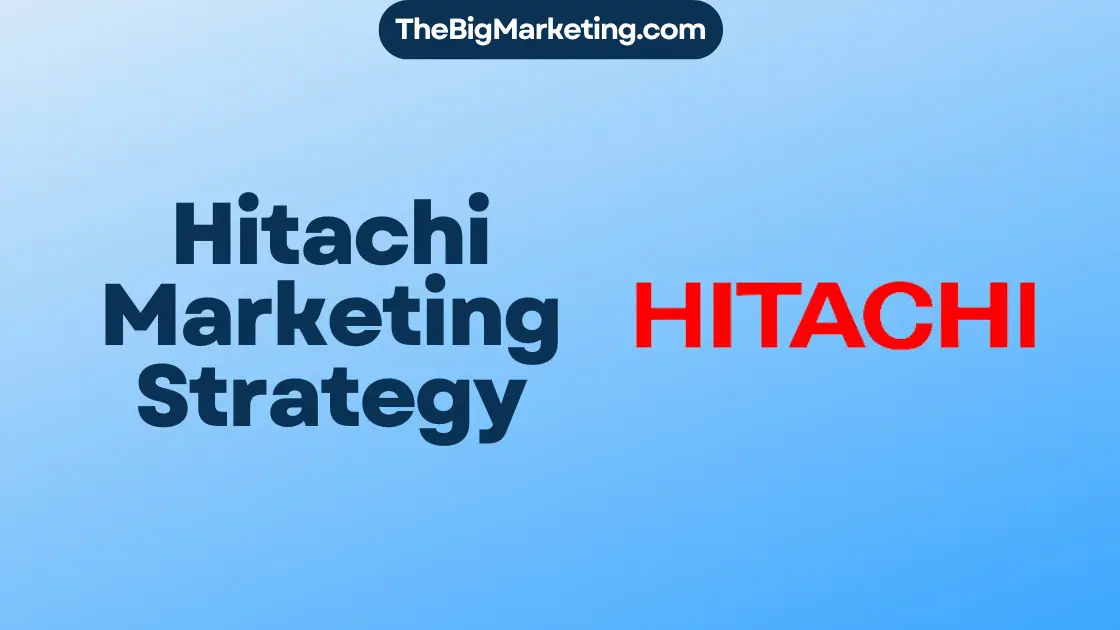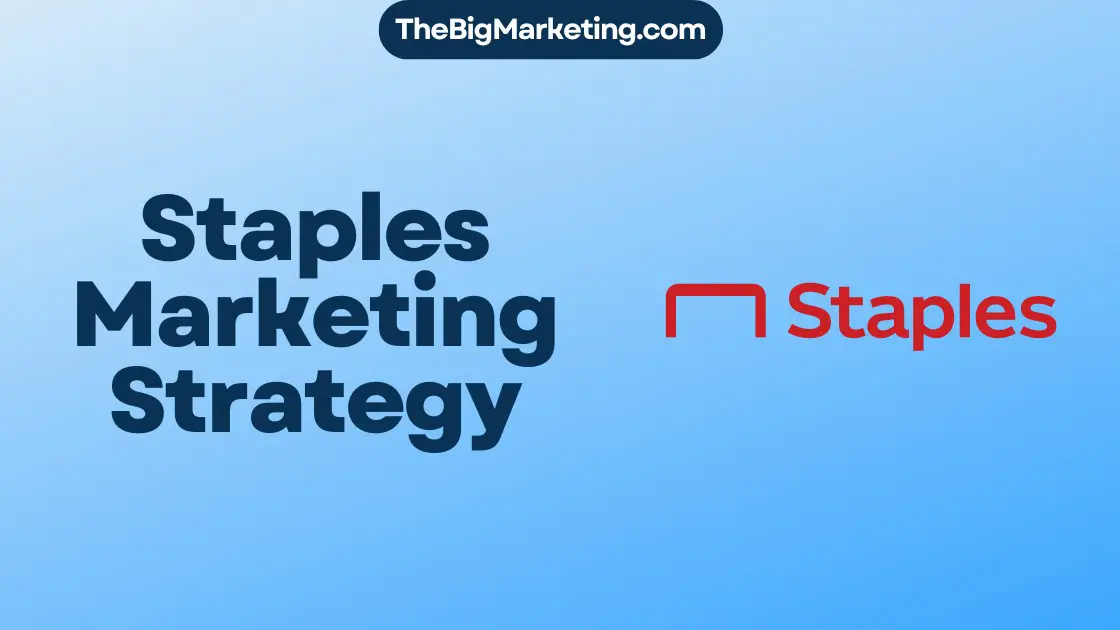B2B digital marketing is an essential component for businesses that sell products and services to other businesses. In this comprehensive guide, we will delve into various aspects of B2B digital marketing strategy, focusing on vital elements such as ecommerce, content marketing, account-based marketing, marketing automation, SEO, social media marketing, analytics and metrics, multi-channel campaigns, and lead generation. These strategies are crucial for staying ahead of the competition and achieving success in the dynamic B2B marketplace.
Key Takeaways:
- B2B digital marketing is crucial for businesses targeting other businesses.
- Effective B2B digital marketing strategies include ecommerce, content marketing, account-based marketing, marketing automation, SEO, social media marketing, analytics and metrics, multi-channel campaigns, and lead generation.
- Staying ahead of the competition requires a comprehensive understanding and implementation of these strategies.
- Analyze and optimize your B2B digital marketing efforts to drive sustainable business growth.
- Continuously adapt to digital transformations and embrace key trends to meet the evolving needs of the B2B marketplace.
Understanding B2B Ecommerce
B2B ecommerce, also known as business-to-business electronic commerce, is a transformative approach to conducting business transactions between two businesses through online channels. This digital platform simplifies the buying and selling of goods and services, offering numerous advantages to both buyers and sellers.
One of the key benefits of B2B ecommerce is enhanced efficiency. By leveraging online channels, businesses can ensure 24/7 availability of their products and services, allowing customers to make purchases at their convenience. Additionally, B2B ecommerce reduces order processing time, streamlines inventory management, and simplifies the reordering process, enabling businesses to operate more smoothly and effectively.
However, B2B ecommerce does come with its own set of challenges. One of the main concerns is the initial investment required to set up an ecommerce platform. Building a user-friendly and secure online store requires careful planning, design, and technical expertise. Additionally, security concerns, such as protecting customer data and ensuring secure payment gateways, must be addressed to build trust and credibility with buyers.
It’s important to note that there are different types of B2B ecommerce models that businesses can adopt. For example:
- Consultants and agencies can offer their expertise and services through an online platform, providing clients with easy access to their offerings.
- Businesses that provide software as a service (SaaS) can leverage B2B ecommerce to offer their solutions to other businesses, enabling seamless and efficient software adoption.
- Producers and distributors can connect with their B2B customers through ecommerce platforms, facilitating smooth transactions and reducing logistical challenges.
- B2B content marketing and retargeting ads can be utilized to promote products and services to other businesses and drive engagement.
By embracing B2B ecommerce, businesses can unlock new opportunities and tap into a wider customer base. The convenience, efficiency, and scalability of online channels make B2B ecommerce a powerful tool for businesses looking to thrive in the digital marketplace.
Types of B2B Ecommerce Models
| Model | Description |
|---|---|
| Consultants and Agencies | Offering expertise and services through an online platform |
| Businesses providing Software as a Service (SaaS) | Delivering software solutions to other businesses |
| Producers and Distributors | Connecting with B2B customers to facilitate transactions |
| B2B Content Marketing and Retargeting Ads | Promoting products and services to other businesses |
Creating High-Quality Content for B2B Marketing
When it comes to B2B marketing, creating high-quality content is paramount. Engaging blog posts, informative white papers, compelling case studies, visually appealing infographics, and attention-grabbing videos are all essential components of a successful content marketing strategy.
By providing valuable insights and addressing the specific needs of your target audience, you can establish your business as an authority in your field. This builds trust and credibility, ultimately attracting potential clients and nurturing leads throughout the buying journey.
It’s important to remember that B2B content marketing is not solely about promoting your products or services. Instead, it’s about providing solutions and valuable information that resonates with your audience. By focusing on their pain points and offering actionable advice, you position your business as a trusted advisor and industry thought leader.
The Power of Storytelling
One powerful strategy in B2B content marketing is storytelling. By sharing real-life success stories of how your products or services have helped other businesses overcome challenges and achieve their goals, you create a deeper connection with your audience. Stories evoke emotions, making your message more memorable and impactful.
Additionally, incorporating data and statistics into your content adds credibility and supports your claims. Use customer testimonials and case studies to provide social proof, showing potential clients that your solutions have delivered tangible results for others.
Optimizing Your Content
To ensure your content reaches its intended audience, it’s crucial to optimize it for search engines. Conduct thorough keyword research to identify relevant terms that your target audience is searching for. Incorporate these keywords naturally throughout your content, including in headings, subheadings, and the body text. However, avoid keyword stuffing, as it can negatively impact the readability and user experience.
Additionally, make your content more accessible by using descriptive meta tags, alt attributes for images, and informative headers. This helps search engines understand and index your content accurately, improving your chances of appearing in relevant search results.
Remember, creating high-quality content takes time and effort. Continuously analyze its performance, gather feedback from your audience, and refine your approach accordingly. By consistently delivering valuable and engaging content, you’ll position your business as a trusted resource and drive meaningful results in your B2B marketing efforts.
| Content Format | Benefits |
|---|---|
| Blog Posts | Establish expertise, drive website traffic, and engage with your target audience. |
| White Papers | Showcase thought leadership, provide in-depth insights, and generate leads. |
| Case Studies | Demonstrate real-world success stories and build customer trust. |
| Infographics | Present complex information in a visually appealing and digestible format. |
| Videos | Create engaging and shareable content that resonates with your audience. |
Leveraging the Power of SEO in B2B Marketing
Search Engine Optimization (SEO) is a crucial component of any B2B marketing strategy. By optimizing your website for relevant B2B keywords, you can improve its visibility in search engine results, drive organic traffic, and generate quality leads. To achieve success with B2B SEO, there are a few best practices to keep in mind.
Keyword Research and Content Optimization
A key aspect of B2B SEO is conducting thorough keyword research to identify the most relevant and high-performing keywords in your industry. These keywords should be strategically incorporated into your website content, including your website copy, blog articles, and landing pages. By optimizing your content with these keywords, you increase the chances of your website ranking higher in search engine results pages (SERPs).
Additionally, it’s important to create high-quality, informative, and engaging content that is tailored to your B2B audience. This will not only satisfy their search intent but also showcase your expertise and provide value to potential customers. By consistently producing valuable content, you can establish your brand as a thought leader in your industry, attracting more visibility and organic traffic.
Backlink Building for Domain Authority
Another essential aspect of B2B SEO is building a strong backlink profile. Backlinks, also known as inbound links, are links from external websites that point to your website. Search engines consider backlinks as a vote of confidence and credibility for your website. Therefore, the more high-quality and relevant backlinks you have, the higher your website’s domain authority.
Building backlinks involves reaching out to industry influencers, guest posting on authoritative websites, and creating link-worthy content that others naturally want to link to. It’s a long-term strategy that requires proactive efforts to establish mutually beneficial relationships and gain valuable backlinks to boost your SEO efforts.
LinkedIn B2B Marketing for Enhanced SEO
LinkedIn, being a professional networking platform, offers tremendous opportunities for boosting your B2B SEO efforts. By sharing valuable, keyword-optimized content on LinkedIn, you can increase your brand’s visibility and drive organic traffic to your website.
LinkedIn allows you to publish articles, share updates, and engage with a relevant B2B audience. By optimizing your LinkedIn profile with relevant keywords, including in your headline, summary, and experience sections, you increase the chances of your profile ranking higher in both LinkedIn and search engine results.
| Benefits of Leveraging LinkedIn for B2B SEO | Best Practices |
|---|---|
| Growing your professional network | – Regularly share valuable content related to your industry – Engage with other professionals by commenting on and sharing their posts |
| Increasing brand visibility | – Optimize your LinkedIn profile with relevant keywords – Participate in industry-specific LinkedIn groups |
| Driving organic traffic to your website | – Include a link to your website in your LinkedIn profile and posts – Share blog articles and other content with a call-to-action to visit your website |
The power of SEO in B2B marketing cannot be understated. By implementing effective keyword research, content optimization, backlink building, and leveraging LinkedIn, you can enhance your B2B SEO efforts and improve your website’s visibility in search engine results. Remember, SEO is an ongoing process that requires continuous monitoring, analysis, and adjustment to stay ahead of the competition and achieve sustainable business growth.
Engaging with Your B2B Audience on Social Media
Social media platforms like LinkedIn, Twitter, and industry-specific forums provide valuable opportunities for B2B engagement. By actively participating in discussions, sharing industry news and updates, and running targeted advertising campaigns, businesses can effectively connect with potential clients, build brand awareness, and foster valuable relationships.
Social media marketing plays a significant role in B2B lead generation and brand development. With its extensive user base and professional networking features, LinkedIn stands out as a key platform for B2B marketers. It offers insightful features such as LinkedIn Analytics and LinkedIn Groups, enabling businesses to gain valuable LinkedIn marketing insights for strategic decision-making.
Tapping into the Power of LinkedIn for B2B Marketing
LinkedIn, with its vast professional network, offers unique opportunities for B2B marketers to reach a highly targeted audience. Here are some effective LinkedIn marketing strategies:
- Create a compelling company page: optimize your LinkedIn company page with relevant keywords and engaging content.
- Join industry-focused LinkedIn Groups: actively engage with group members by sharing valuable insights, answering questions, and establishing your brand as an industry authority.
- Share relevant content: regularly post industry news, informative articles, and thought leadership content to capture the attention of your LinkedIn network.
- Engage with your connections: interact with your LinkedIn connections by commenting on their posts, sharing valuable resources, and fostering meaningful conversations.
- Utilize LinkedIn Ads: leverage LinkedIn’s advertising platform to create targeted campaigns that reach your ideal B2B audience based on job titles, industries, and interests.
Remember, consistent engagement and providing valuable content are key to building a strong presence on social media platforms. By leveraging the power of social media, particularly LinkedIn marketing insights, businesses can effectively connect with their B2B audience, establish credibility, and drive lead generation.
Effective Email Marketing for B2B Lead Generation
Email marketing remains a powerful tool for nurturing leads, building relationships, and promoting B2B offerings. When implemented effectively, it can drive conversions and generate valuable leads for your business. To ensure the success of your B2B email marketing campaigns, consider incorporating the following techniques:
1. Segmentation of Email Lists
Segmenting your email lists allows you to categorize your contacts based on specific criteria such as industry, job role, or company size. By tailoring your email content to each segment’s interests and needs, you can deliver targeted messages that resonate with your audience, increasing engagement and conversion rates.
2. Valuable Content and Insights
Providing your subscribers with valuable content and insights is key to keeping them engaged and interested in your emails. Share industry news, thought leadership articles, case studies, and educational resources that address their pain points and offer solutions. Demonstrating your expertise and providing valuable resources positions your business as a trusted advisor and builds credibility.
3. Optimized Subject Lines and Calls to Action (CTAs)
Subject lines are the first thing your recipients see, and they play a crucial role in whether your emails get opened or not. Craft compelling subject lines that grab attention and entice the recipient to open the email. Additionally, include clear and compelling CTAs that prompt action, such as downloading a whitepaper, scheduling a demo, or requesting more information. Optimize your CTAs to create a sense of urgency and make it easy for recipients to take the desired action.
By employing these techniques, you can enhance the effectiveness of your B2B email marketing campaigns, drive lead generation, and nurture prospects towards conversion.
| Email Marketing Best Practices | Description |
|---|---|
| Personalization | Address recipients by their name and tailor content to their specific needs and interests. |
| Automation | Utilize email automation tools to deliver targeted messages at the right time, based on user behavior and triggers. |
| A/B Testing | Experiment with different subject lines, designs, layouts, and CTAs to optimize email performance. |
| Mobile Optimization | Design emails that are mobile-friendly to ensure optimal viewing on smartphones and tablets. |
| Metrics and Analytics | Measure email performance, track open rates, click-through rates, and conversions to gain insights and optimize future campaigns. |
Utilizing Pay-Per-Click Advertising in B2B Marketing
Pay-per-click (PPC) advertising is a powerful tool for businesses looking to expand their reach, generate leads, and drive conversions in the B2B marketplace. By displaying targeted ads on search engine results pages and relevant websites, companies can effectively engage with their target audience and increase visibility.
Platforms like Google Ads and LinkedIn Ads offer B2B marketers a wide range of options to optimize their PPC campaigns and target the right audience. Through careful keyword selection, ad copy creation, and budget management, businesses can achieve better results and maximize their return on investment.
Incorporating PPC advertising into your B2B marketing strategy allows you to:
- Reach a wider audience: With PPC, you can extend your reach beyond your existing network and connect with potential clients who are actively searching for products or services in your industry.
- Target specific demographics: By leveraging advanced targeting options, such as location, job title, and industry, you can ensure that your ads are shown only to the most relevant audience.
- Increase brand visibility: PPC ads provide immediate visibility on search engine results pages and relevant websites, helping to increase brand awareness and establish your business as a trusted industry leader.
- Drive qualified traffic: Through precise targeting and compelling ad copy, PPC advertising drives relevant and high-quality traffic to your website, increasing the chances of generating valuable leads.
- Analyze and optimize campaigns: PPC platforms offer robust analytics and reporting tools that allow you to track the performance of your campaigns, identify areas for improvement, and make data-backed decisions to optimize your advertising efforts.
Implementing B2B Lead Generation Techniques in PPC Advertising
Incorporating B2B lead generation techniques in your PPC advertising campaigns is crucial for maximizing the effectiveness of your efforts. By aligning your ads with specific lead generation goals, you can ensure that you are attracting the right audience and capturing their contact information for further nurturing.
Here are some key B2B lead generation techniques to consider when utilizing PPC advertising:
- Creating compelling landing pages: Design landing pages that are tailored to the specific needs of your target audience and include lead capture forms to collect valuable contact information.
- Offering gated content: Provide valuable resources such as white papers, e-books, or industry reports in exchange for contact details, allowing you to nurture leads and establish meaningful relationships.
- Implementing retargeting campaigns: Utilize retargeting ads to re-engage users who have previously visited your website or interacted with your brand, increasing the chances of converting them into leads.
- Using strong call-to-actions: Craft persuasive and clear call-to-action statements in your ad copy and landing pages to encourage visitors to take the desired action and provide their contact information.
- Segmenting and personalizing your campaigns: Divide your target audience into specific segments based on industry, job title, or other relevant criteria, and create personalized ad campaigns to address their unique pain points and challenges.
By implementing these B2B lead generation techniques in your PPC advertising strategy, you can generate high-quality leads and nurture them through the sales funnel, ultimately increasing your chances of closing deals and driving revenue.
To illustrate the impact of PPC advertising in B2B lead generation, here is a visual representation of the conversion rates achieved through different advertising channels:
| Advertising Channel | Conversion Rate |
|---|---|
| PPC Advertising | 14% |
| Content Marketing | 8% |
| Email Marketing | 6% |
| Social Media Advertising | 4% |
As the table demonstrates, PPC advertising has a significantly higher conversion rate compared to other channels, making it a valuable component of any well-rounded B2B marketing strategy.
Streamlining B2B Marketing Efforts with Automation
In today’s fast-paced digital landscape, B2B marketers are constantly seeking ways to optimize their strategies and generate leads more efficiently. This is where marketing automation comes into play. By leveraging marketing automation tools, businesses can streamline their B2B marketing efforts, automate repetitive tasks, and focus on building meaningful relationships with their target audience.
Marketing automation offers a range of benefits for B2B lead generation. Let’s take a closer look at how it works and the techniques that can drive success:
1. Email Marketing Automation
Email marketing remains a popular and effective channel for B2B lead generation. With marketing automation tools, businesses can automate email campaigns, personalize content based on customer behavior, and nurture leads throughout the sales funnel. By segmenting email lists and crafting targeted messages, marketers can ensure that their audience receives relevant and engaging content.
2. Lead Nurturing
Lead nurturing is a critical aspect of B2B marketing. It involves developing relationships with potential customers and guiding them through the buying journey. Marketing automation tools enable businesses to automate lead nurturing processes, delivering personalized content at the right time to move prospects closer to conversion. This increases the chances of turning qualified leads into loyal customers.
3. Social Media Scheduling
Social media marketing plays a vital role in B2B lead generation. With marketing automation, marketers can schedule and automate social media posts, ensuring consistent presence across multiple platforms. By using automation tools to publish content at optimal times, businesses can expand their reach, engage with their audience, and drive traffic to their website.
4. Data and Insights
One of the most valuable aspects of marketing automation is the data and insights it provides. These tools offer detailed analytics and reporting, enabling marketers to track the performance of their campaigns, measure the effectiveness of their strategies, and make data-driven decisions. By analyzing customer behavior and engagement metrics, businesses can refine their B2B marketing efforts and achieve better results.
Overall, marketing automation is a game-changer for B2B marketers. It simplifies complex processes, maximizes efficiency, and helps businesses generate more leads. By leveraging automation techniques in email marketing, lead nurturing, social media scheduling, and data analysis, marketers can streamline their efforts and achieve their B2B lead generation goals more effectively.
| Benefits of Marketing Automation | Techniques for Successful B2B Lead Generation |
|---|---|
| 1. Saves time and resources | 1. Segmenting email lists for targeted campaigns |
| 2. Increases efficiency and productivity | 2. Personalizing content based on customer behavior |
| 3. Enables personalized marketing at scale | 3. Automating lead nurturing processes |
| 4. Streamlines repetitive tasks | 4. Automating social media scheduling |
| 5. Enhances lead nurturing and conversion | 5. Leveraging data and insights for optimization |
The Importance of Digital Transformation in B2B Marketing
Digital transformation is revolutionizing the way businesses operate, and its impact on B2B marketing strategies cannot be overlooked. By embracing digital solutions, businesses can enhance their efficiency, increase productivity, and deliver exceptional customer experiences. In today’s rapidly evolving digital landscape, digital transformation has become a critical component of successful B2B marketing.
One crucial aspect of digital transformation is the intersection with Account-Based Marketing (ABM), which focuses on targeting specific high-value accounts through personalized campaigns. By leveraging digital technologies and data-driven insights, businesses can tailor their marketing efforts to engage with key decision-makers and establish meaningful connections.
Benefits of Digital Transformation in B2B Marketing
Digital transformation offers several significant benefits for B2B marketing:
- Enhanced Efficiency: By automating repetitive tasks and leveraging advanced technologies, businesses can streamline their marketing processes, allowing teams to focus on strategic initiatives and driving results.
- Improved Customer Experience: Digital transformation empowers businesses to deliver personalized and seamless customer experiences across multiple touchpoints. Through data-driven insights, businesses can better understand customer preferences and tailor their interactions accordingly.
- Increased Market Reach: Digital channels provide a vast and global audience reach. With the right digital marketing strategies, businesses can extend their market penetration, attract new customers, and strengthen existing customer relationships.
- Better Data Insights: Digital transformation enables businesses to collect valuable data on customer behavior, preferences, and engagement. These insights can inform targeted marketing campaigns, optimize performance, and drive better decision-making.
Implementing Digital Transformation in B2B Marketing
To effectively implement digital transformation in B2B marketing, businesses should consider the following:
- Adopting Agile Mindset: Embrace a culture of agility and adaptability to navigate the ever-changing digital landscape. Encourage experimentation, continuous learning, and innovation within marketing teams.
- Leveraging Marketing Automation: Implement marketing automation tools to streamline processes, personalize communications, and nurture leads effectively. Automation enhances efficiency and allows for scalable, data-driven marketing strategies.
- Investing in Data Analytics: Prioritize data-driven decision-making by investing in robust analytics tools. Analyzing and interpreting data can unlock valuable insights, enabling businesses to optimize marketing strategies, identify trends, and make informed decisions.
- Cultivating Cross-Channel Integration: Seamlessly integrate digital channels, such as websites, email marketing, social media, and mobile, to provide a consistent and cohesive brand experience for customers.
By embracing digital transformation, businesses can unlock new opportunities for growth, gain a competitive edge in the market, and forge stronger relationships with customers. In today’s digital era, B2B marketing trends are shifting towards a more dynamic and customer-centric approach that aligns with the principles of digital transformation.
Key Trends in B2B Marketing for 2024
As we look ahead to 2024, it’s crucial for B2B marketers to stay ahead of the curve and adapt to the evolving landscape. Several key trends will shape the B2B marketing landscape and define success in the coming year:
Digital Transformation:
The increasing shift towards digitization is transforming the way businesses operate. Embracing digital transformation is vital for B2B marketers to enhance efficiency, streamline processes, and improve customer experience. By leveraging technology, data-driven insights, and innovative solutions, businesses can gain a competitive edge in the digital world.
Account-Based Marketing (ABM):
ABM continues to gain traction as a highly effective B2B marketing strategy. This approach focuses on targeting high-value accounts with personalized campaigns, rather than casting a wide net. By tailoring messaging and content to specific accounts’ needs and pain points, B2B marketers can drive engagement, nurture relationships, and maximize ROI.
B2B SEO for Maximum Visibility:
Search Engine Optimization (SEO), specifically tailored for the B2B landscape, is becoming increasingly important for businesses to be seen by their target audience. By optimizing website content, implementing relevant keywords, and building high-quality backlinks, B2B marketers can improve visibility in search engine results and drive organic traffic.
High-Impact Content Marketing:
Content marketing remains a powerful tool for B2B lead generation and nurturing. In 2024, creating high-impact content that resonates with B2B buyers will be paramount. This includes developing engaging blog posts, informative white papers, attention-grabbing infographics, and compelling videos. By delivering valuable insights and addressing pain points, businesses can establish thought leadership and build trust with their target audience.
Engaging Content for B2B Buyers:
Understanding the specific needs and preferences of B2B buyers is crucial for effective content creation. Tailoring content to address challenges, provide solutions, and deliver relevant industry insights will help businesses connect with their target audience and drive engagement. By keeping content concise, actionable, and highly relevant, B2B marketers can capture the attention and interest of their potential clients.
Optimizing B2B Content for Search Engines:
Optimizing B2B content for search engines is essential for enhancing visibility and reaching the right audience. Implementing effective keyword strategies, incorporating relevant meta tags, and optimizing on-page elements can significantly improve search engine rankings and increase organic traffic. B2B marketers must focus on aligning content with search intent and delivering valuable information that meets the needs of their target audience.
Implementing Effective Keyword Strategies:
Choosing the right keywords and incorporating them strategically throughout marketing materials is vital for B2B lead generation. By conducting thorough keyword research, understanding search trends, and leveraging long-tail keywords, businesses can increase their visibility in search engine results and attract qualified leads.
B2B Marketing Trends 2024
| Trend | Description |
|---|---|
| Digital Transformation | Embracing technology-driven solutions for enhanced efficiency and customer experience. |
| Account-Based Marketing (ABM) | Targeting specific high-value accounts with personalized campaigns. |
| B2B SEO for Maximum Visibility | Optimizing website content and implementing SEO best practices for improved search engine rankings. |
| High-Impact Content Marketing | Creating valuable and engaging content to establish thought leadership and build trust. |
| Engaging Content for B2B Buyers | Tailoring content to resonate with the specific needs and preferences of B2B buyers. |
| Optimizing B2B Content for Search Engines | Structured and optimized content to improve search engine visibility and organic traffic. |
| Implementing Effective Keyword Strategies | Strategically using relevant keywords throughout marketing materials for greater lead generation. |
Conclusion
A well-rounded B2B Digital Marketing Strategy in 2024 is crucial for businesses to outperform their competitors and generate leads in today’s competitive marketplace. By leveraging various digital marketing channels and tactics such as ecommerce, content marketing, SEO, social media, email marketing, PPC advertising, and marketing automation, businesses can create a powerful online presence and connect with their target audience effectively.
Embracing digital transformation and staying updated with the latest trends such as account-based marketing (ABM) and B2B SEO will further enhance the success of a B2B digital marketing strategy. By aligning their marketing efforts with these trends, businesses can deliver personalized and relevant experiences to their prospects and customers.
However, it’s important for businesses to continually analyze and optimize their digital marketing strategies to drive sustainable business growth. This involves monitoring key metrics, identifying areas for improvement, and fine-tuning campaigns to maximize results. By staying informed about the latest industry developments and adapting their strategies accordingly, businesses can stay ahead of the curve and achieve long-term success in the B2B marketplace.




